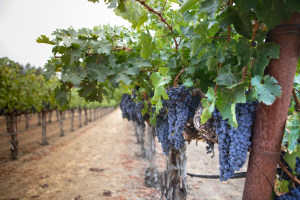Coca-Cola has had a tough decade. Hit on four sides by anti-obesity, anti-sugar, anti-artificial sweeteners and anti-diabetes drives, it has also been attacked by waves of more health conscious drink options.
In fact, all carbonated drinks are on the wane globally. 71% of Australians drank at least one soft drink in any given four weeks in 2003, according to Roy Morgan Research. This has now fallen to just 52% [June 2014].
A huge recent trend in Australia, coconut water represented 6% of global juice drinks launches in 2014, up from 4.5% in the previous 12 month period. In Asia Pacific, coconut water accounted for 14% of new drinks brands in 2012, up from 9% in 2008.
Global sales of Coca-Cola fell to US$11.98 billion (AU$13.7bn) in third quarter 2014 from $12 billion a year earlier. Analysts had estimated US$12.1 billion on average, according to data compiled by Bloomberg.
Chief executive officer, Muhtar Kent, announced a $US3 billion (U$3.4) in annual expenses by 2019. Shareholders were unimpressed and shares fell by the most in six years.
But Coca-Cola is doing more than trying to prop up its core brand with sustainable packaging developments and social responsibility initiatives. Since the end of last year, its suite of drinks brands has included the new trend, coconut water. Zico, a not-from-concentrate coconut water brand in the US, was acquired by The Coca-Cola Company at the end of November 2013. This week Coca-Cola South Pacific launched Zico in Australia in a re-sealable tetra pak, in both 330ml and 1 litre sizes.
Zico was founded by Mark Rompolla in 2004, and is the second largest US brand of coconut water (Vita Coco holds the number one position). The company doubled its sales last year to become a US$87 million (AU$99m) business.
PepsiCo owned O.N.E. is the third largest coconut water brand in the US, which has grown over 1,100% since its introduction to the Whole Foods market by Brazilian entrepreneur, Rodrigo Velso, in 2006. Together, these three players have majority control over the market which has grown from virtually zero sales in 2004 to more than AU$911 million in the U.S. and Europe combined. Sales in those two regions grew 23% last year.





